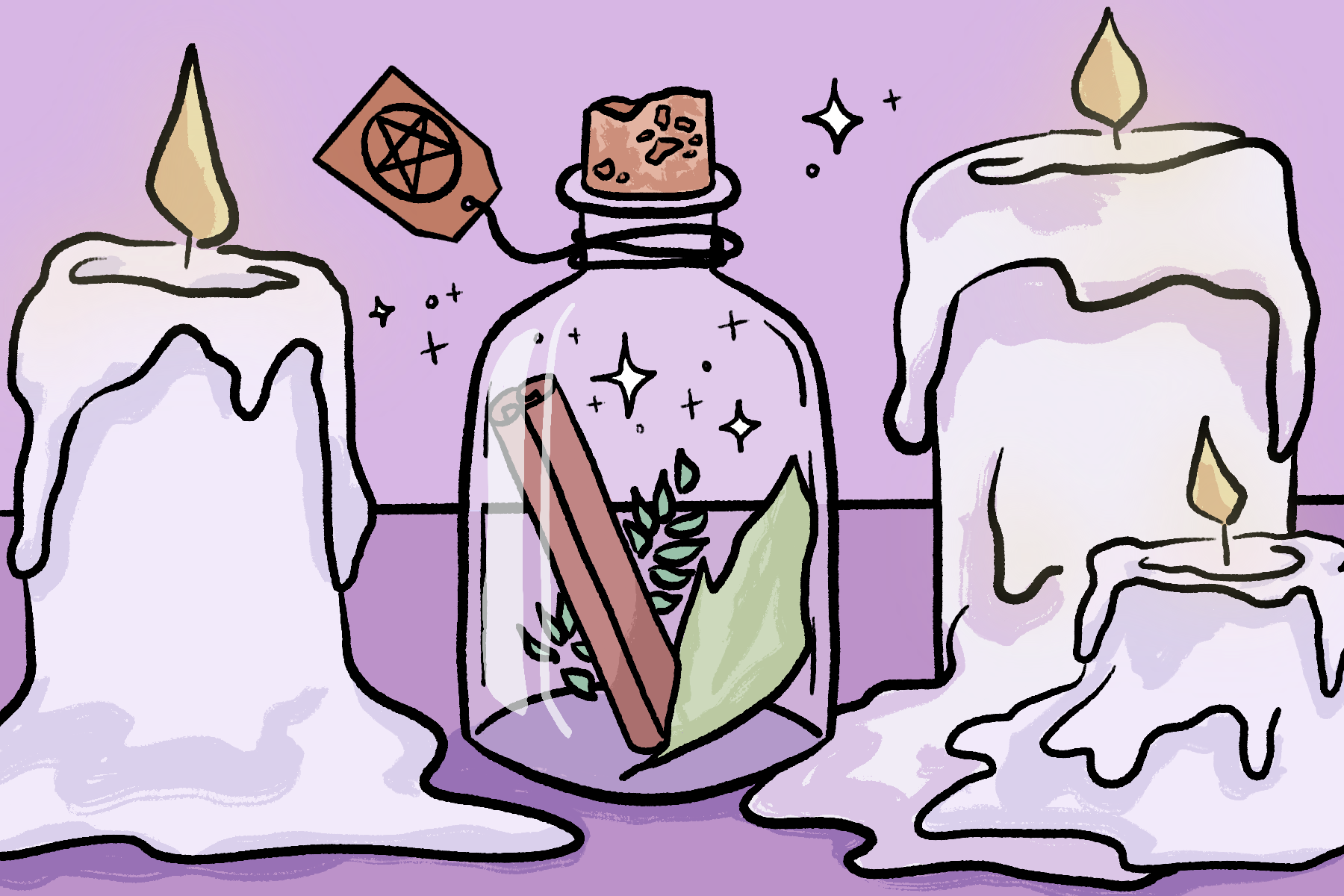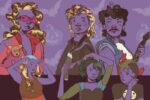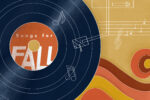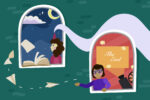Occult-based religions saw an incredible rise in popularity from 2017 to 2020, with a certain degree of popularity remaining today. Products like dried herbs, tarot cards, crystals and pentacle-adorned jewelry quickly found their way into the hands of tens of thousands of consumers, especially as Halloween approached. Wicca was treated as a trend for several months, but unbeknownst to many, Wicca is just one of various spiritual practices and beliefs that use these tools. Religions like Wicca, Satanism, paganism and witchcraft, in general, were given online exposure that resulted in many taking a shallow dive into the vast depths of the occult. A significant majority of those taking their first steps into these practices often conflated the terms, however, and perpetuated common misconceptions regarding the occult.
This Halloween, cultivating a deeper understanding of these spiritual practices can go a long way. Contrary to the popular image of an evil, brooding witch, those who practice witchcraft, paganism, Satanism and Wicca are often kind and passionate individuals who love to share knowledge. Learning what your newest crystals can be used for may result in a more honest appreciation of the practice’s generations-old origins and can spark a newfound passion within yourself. Beyond that, Halloween is considered the most spiritually powerful and relevant day of the year and widening your understanding of the day when you celebrate is invaluable.
The Fall of Wicca’s Trendiness
As with all trends, the popularity of Wicca and the occult among teens and young adults burned out after a while. There are a variety of factors that could have contributed to this, like the fact that more people came forward to share genuine information, which incited skepticism toward the discipline. This is because younger participants tended to believe modern magic functions like movie magic. In reality, modern magical practices like divination and spellwork do have their limitations.
In addition, trends seem to expire rather quickly in their own right, so it’s entirely possible it was just time for society to move on. One thing that is certain though is that the rise of Wicca as a trend left a lasting impact on online witch communities. As a result, unreliable information has permeated platforms like TikTok. Beginner witches teaching other beginners is not always a bad thing — sometimes newbies have novel and innovative perspectives to offer. However, many eager young practitioners, perhaps hoping to gain clout, provided misguided or just blatantly wrong information about certain practices.
One trending how-to spell video, for example, showed a new practitioner casting what many seasoned witches would call a love spell on their grandmother when they intended something much different. Similar incidents reveal that most of the TikTok videos surrounding magic lack nuance and detail, or are otherwise entirely false and not conducive to a positive experience in magical education.
If this dissuades those interested in what the occult has to offer, it absolutely should not. The rise of Wicca’s trendiness punctuates the importance of critical thinking for anyone interested in occult practices. The fact that witchcraft became popular isn’t entirely a bad thing, either. Wicca, witchcraft and the occult make practitioners feel overwhelmingly positive things, and the exposure to these practices online led to a significant number of people finding solace.
Defining Spiritual Practices
Even considering that Wicca and related practices had their spotlight on social media, it is rare that those with a casual interest can give a concise, adequate definition of Wicca, paganism or witchcraft that distinguishes them from each other. It may be useful to consider the model of Christianity when categorizing different occult practices. Most people are familiar with the fact that the term “Christianity” refers to dozens of other denominations and sects. While most Christians maintain somewhat overlapping beliefs, these beliefs become increasingly distinct when observing denominational differences. Likewise, while many occult-based beliefs can be grouped together, each has key distinctions.
For example, paganism can be defined as a religion or practice where participants worship nature or the earth. This includes different branches or pantheons of paganism, such as Greek, Egyptian and Norse. Some people consider polytheism to be an essential element of paganism as well. Wicca is similarly defined by its emphasis on nature; however, Wicca refers to an incredibly specific set of religious beliefs first founded by Gerald Gardener and is ultimately a religion. Witchcraft, on the other hand, is not inherently a religion at all. Witchcraft is more of a practice and varies incredibly by the practitioner. This is not universally applicable but generally speaking, it does to all Wiccans and pagans; however, not all witches are Wiccan or pagan. Most Wiccans consider themselves to be pagan as well, but pagans are not necessarily Wiccan.
It is obvious that occult-based religions can be confusing to newcomers. Each of the aforementioned terms can be broken down even further, and those aren’t even close to all of the occult-based practices one can participate in. It does seem that those remain the most popular ones for beginners.
Furthermore, many misconceptions about occult religions remain popular. While surprising to many, not all witches believe in the devil — in fact, a large number of Satanists do not believe that the Christian idea of Satan exists. Additionally, Christians can be witches too and perhaps most significantly, practitioners of these beliefs are not evil. Many focus their practice on healing and helping others or strengthening personal skills and abilities. While Halloween seems to have a devious air to it as well, you may be surprised to find that for those who celebrate Halloween as a part of their religion, it is a positive and uplifting holiday.
Halloween: Witchy History & Open-Minded Celebration
For pagans, Wiccans, witches and others, Halloween is also known as Samhain. One of the eight sabbats on the Wiccan calendar, Samhain signifies the end of the harvest and the beginning of winter and is the night of the year when the spiritual world is most accessible to humans. Bearing this in mind, Samhain is often a time for practitioners to commune with the passed spirits of loved ones and celebrate the lives they had. On the evening of Oct. 31, many witches hold rituals or other ceremonies where they honor late loved ones. This is a positive experience for those celebrating, as death is perceived by many witches to be just another phase of our existence.
Reflecting on the lives of formerly living friends and family isn’t always something people are keen to do. It is obviously a heart-wrenching affair for anyone who has experienced a recent or traumatic death. With this in mind, there are still many ways to remain respectful of other cultures and occult religions while celebrating Halloween, both for those interested in something lighthearted as well as those looking to delve into something like the nature of Samhain.
First, it is wise to research any tools or items commonly associated with witches that you plan to include in your costume. Many people will tell you it’s perfectly fine to dress up as a witch for Halloween, but that oftentimes comes with a disclaimer: Avoid harmful stereotypes about witches. Knowing the spiritual use of various tools like pentagrams, crystals and jewelry can make celebrating Halloween even more fun while also preventing the spread of misinformation. It is also important to note that many depictions of witches as costuming can be insensitive, so researching your costume idea is important regardless of whether you are using items like crystals. Hair, skin and facial depictions of witches are all good things to research, as many of the most commonly seen depictions of witches have antisemitic origins.
Second, if you’re feeling up to exploring witchcraft in a more personal way, meditating, spending time in nature and learning to honor those who have passed are all somewhat accessible to beginners. Something simple to do is light a candle for anyone you know who has passed on and meditate while the candle burns. See if there are observable atmospheric changes, and research how to pick up on energies that surround you. The simple act of being mindful of the boundary between life and death can be moving for many as this is something that is overlooked in daily life.
All in all, it is important to know that there are myriad ways to celebrate Samhain, most of which can be done by anyone wishing to appreciate other beliefs. While socially, occult beliefs have been misunderstood by casual observers and are tangled up in misinformation, taking time this Halloween to honestly learn something about the community so many participants are taking part and sharing in is incredibly rewarding. Not only does this contribute to spreading accurate, reliable information, but it may lead to the discovery of a practice that has a world of opportunity and wonder to offer.

















